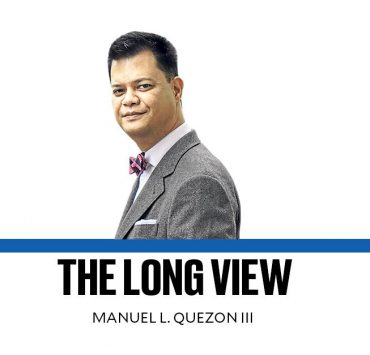Keeping Gen Zs at work

Often maligned as “vapid, attention-seeking brats,” it turns out that Gen Z employees, the newest entrants to the country’s workforce, are not that much different from the generations before them.
Like their elders, they are also yearning for a fulfilling work environment with institutional values aligned with their own, where they can work hard so that they can have long-term financial security to take care of themselves and their family.
This is according to the study “Motivating Filipino Generation Z Employees at Work: Enablers and Outcomes” by Ateneo de Manila University researchers, which looked at what motivates workers from Gen Z—those born between 1995 and 2012.
The Baby Boomers, born between 1946 and 1964, have retired and Gen Xers or those born between 1961 and 1979 dare follow closely, leaving the Millennials and Gen Zs of working age to do the heavy lifting in public and private sectors. But while Gen Zs share similar aspirations with those who had come before them, they have distinct demands or preferences that employers have to provide if they want to keep them in their fold, especially those with the talent and the potential to be a highflier.
Financial security
According to the Ateneo study, Gen Z employees put a premium on personal achievement in the form of career growth and skill development as reflected in their “desire for rapid advancement and fulfillment in their roles.”
More than the previous generations, they are likely to thrive in jobs that provide them a platform to create “a positive impact on others and on society at large.”
“This is partly driven by their experience of growing up in a digitally connected world, where social issues and values-driven missions are increasingly visible and influential,” the study said. Indeed, Gen Zs have emerged as more than eager to work hard for both financial security and social good, a stable income, and personal achievement.
Such motivation makes Gen Zs different from Baby Boomers and Gen Xers, who prioritize job security and are generally less motivated by the need for their work to align with personal or social values, thus more likely to stay with their employers for extended periods compared to those who came after them.
Companies, therefore, that think that they can count on traditional job security and their loyalty for them to stay, will likely not be able to engage and retain Gen Zs, whose idealism and energy are balanced with pragmatism. In short, if Gen Zs don’t feel that they are somehow making a difference or getting a sense of fulfillment, they will most likely leave for other opportunities.
Remote work
Gen Zs also have a greater preference for hybrid or flexible remote work as they value autonomy and balance, meaning they will want the flexibility, for example, to work where they want, not necessarily in their home or office, in keeping with the desire to balance work with other life pursuits such as traveling, being with friends, and pursuing hobbies.
Like most Filipinos, Gen Zs seek competitive salaries and benefits when looking for a job out of their desire to support their families. “Financial security is one of Gen Zs’ motivating factors, as they view work as an avenue for them to earn and save money for their future,” the researchers added.
But it seems that workers from this cohort are not finding what they are looking for, as a separate study by job portal Jobstreet by SEEK noted that Gen Z employees along with other workers in the National Capital Region were the least likely to be satisfied with their current jobs. “This may be inferred from a widening gap of perceptions when it comes to work culture and work-life balance among younger and older colleagues,” Jobstreet said.
Although, the Employee Job Happiness Index 2024 also found that those who are under the work-from-home setup showed higher job satisfaction scores.
Work-life balance
“The same employees cited a higher satisfaction when it comes to work-life balance, scoring 4.92. With the growing number of jobs offering a WFH arrangement, this has positively impacted the country’s overall Job Satisfaction score,” Jobstreet noted.
Given these, it would do well for private and public companies who want to get the most of the Gen Zs to accept that what worked for and motivated the older generations of Filipinos will no longer be enough to satisfy the latest generation of workforce who grew up in a digitally connected world and who value work-life balance alongside job security.
As the Ateneo study underscored, companies aiming to retain Gen Z employees should focus on fostering career growth; aligning organizational values with broader social impact; and providing robust financial benefits that cater both to immediate needs and long-term security.
This way, they will be able to harness that youthful energy and eagerness to make a positive impact, thus helping make them a powerful force of change not just in their organizations but in the larger Philippine society.





















